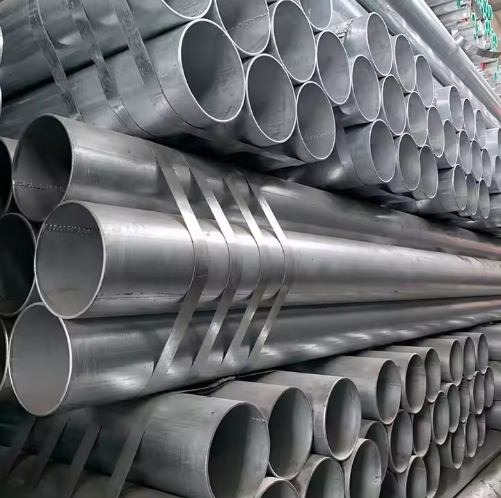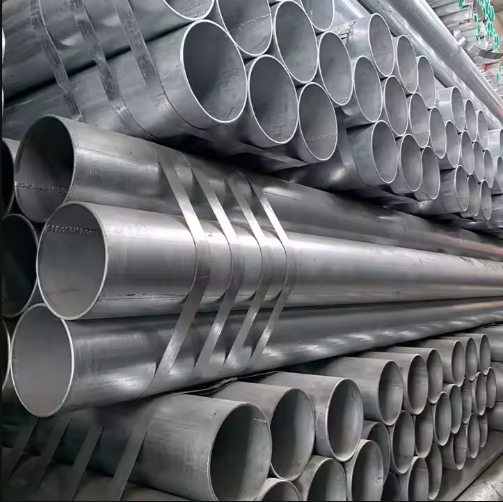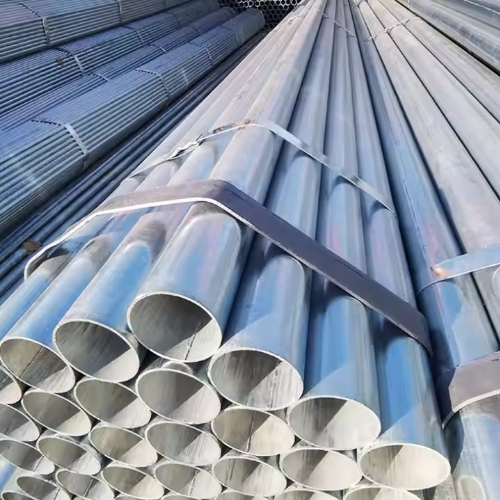Spiral steel pipes with customized lengths, ISO9001 certified, supporting third-party inspection
Category:
Summary description:
Keywords:
Details
In the realm of industrial infrastructure, where precision, reliability, and adaptability are paramount, spiral steel pipes have emerged as a cornerstone of modern engineering. Among the key attributes that set exceptional spiral steel pipes apart are their customizable lengths, adherence to the rigorous ISO9001 quality management standard, and support for third-party inspections. These features collectively ensure that the pipes meet the diverse demands of projects ranging from oil and gas pipelines to municipal water systems, offering a blend of flexibility, quality, and transparency that is indispensable in today’s complex construction landscape.
At the forefront of these pipes’ appeal is their customized length capability, a feature that addresses the unique challenges of large-scale projects. Unlike standard-length pipes, which often require excessive cutting, welding, or fitting to align with project specifications, spiral steel pipes with customized lengths minimize waste and streamline installation. Manufacturers can produce these pipes in lengths ranging from a few meters to over 12 meters, tailored to the exact requirements of the project. This flexibility is particularly valuable in applications such as cross-country oil pipelines, where long, continuous sections reduce the number of joints—critical for minimizing leak risks and maintaining pressure integrity. In urban construction, where space is limited, shorter customized lengths allow for easier maneuvering through tight spaces, such as under roads or between existing structures. By eliminating the need for unnecessary joints, customized lengths also reduce labor costs and installation time, accelerating project timelines and reducing the potential for errors during assembly. Whether the project demands 6-meter sections for a municipal water network or 10-meter lengths for an industrial plant, the ability to customize ensures a perfect fit, enhancing both efficiency and performance.
Underpinning the quality of these spiral steel pipes is ISO9001 certification, a globally recognized standard for quality management systems. Achieving ISO9001 certification is no small feat; it requires manufacturers to implement strict processes for quality control, from raw material selection to final product testing. Every stage of production is documented and monitored, ensuring consistency and traceability. For example, the steel used in the pipes must meet precise chemical composition standards, with rigorous testing to verify tensile strength, yield strength, and ductility. The spiral welding process, which forms the pipe’s structural integrity, is subject to continuous monitoring, with parameters such as weld temperature, speed, and pressure carefully controlled to prevent defects. ISO9001 also mandates regular internal audits and process improvements, driving manufacturers to refine their techniques and address potential issues proactively. For project managers and engineers, ISO9001 certification provides assurance that the pipes have been produced to the highest standards, reducing the risk of failures, costly rework, or safety incidents. It also facilitates international trade, as the certification is recognized across borders, simplifying compliance with diverse regulatory requirements.
Adding another layer of confidence is the support for third-party inspections, a practice that ensures impartial verification of the pipes’ quality. Third-party inspection agencies, independent of both the manufacturer and the buyer, conduct rigorous assessments using advanced testing methods. These may include ultrasonic testing to detect hidden weld defects, hydrostatic pressure tests to verify leak resistance, and dimensional checks to ensure compliance with specifications. Inspectors also review documentation, such as material certificates and production records, to confirm that the manufacturing process aligns with ISO9001 standards and project requirements. This impartial oversight is particularly valuable in high-stakes industries such as oil and gas, where a single pipe failure could lead to environmental disasters or financial losses. For buyers, third-party inspections provide an objective assessment, reducing reliance on internal quality checks and fostering trust between parties. In complex projects involving multiple stakeholders, such as public-private partnerships, third-party reports serve as a common reference point, ensuring that all parties agree on the pipes’ quality before installation begins.
The spiral welding technology itself contributes significantly to the pipes’ performance, complementing their customizable lengths and quality certifications. Spiral welded pipes are formed by rolling a continuous steel strip into a helical shape and welding the edges, creating a strong, uniform structure. This design distributes stress evenly around the pipe’s circumference, making it highly resistant to internal and external pressure—critical for applications such as high-pressure gas transmission or deep-sea oil pipelines. The spiral weld also enhances the pipe’s flexibility, allowing it to withstand ground movement or seismic activity without cracking, a key advantage in earthquake-prone regions. Compared to straight-seam pipes, spiral welded pipes offer greater consistency in wall thickness and diameter, ensuring predictable flow rates and reducing energy loss in fluid transportation. This structural superiority, combined with customized lengths, makes them ideal for projects where reliability and efficiency are non-negotiable.
In practical applications, these spiral steel pipes excel across a wide range of industries. In the oil and gas sector, their customized lengths reduce the number of connections in long-distance pipelines, minimizing the risk of leaks and improving flow efficiency. ISO9001 certification ensures that they can withstand the corrosive effects of hydrocarbons and harsh environmental conditions, while third-party inspections verify their ability to operate safely under high pressure. For municipal water and wastewater systems, the pipes’ customizable lengths simplify installation in urban areas, where routing around existing infrastructure is often necessary. The spiral design’s resistance to corrosion, when paired with protective coatings, ensures longevity in buried applications, while ISO9001 standards guarantee that the pipes meet health and safety requirements for potable water transport. In industrial settings, such as power plants or chemical facilities, the pipes’ ability to be tailored to specific lengths and their verified quality make them suitable for conveying steam, chemicals, or other aggressive fluids, where leaks could have catastrophic consequences.
Beyond their immediate performance benefits, these spiral steel pipes offer long-term economic advantages. The customized lengths reduce material waste, lowering initial costs and minimizing environmental impact. ISO9001 certification ensures a longer service life by preventing premature failures, reducing maintenance expenses and downtime. Third-party inspections, while adding an upfront cost, prevent costly mistakes by identifying issues before installation, avoiding the need for expensive repairs or replacements later. In large-scale projects, these savings can be substantial, making the pipes a cost-effective choice over their lifecycle. Additionally, the traceability provided by ISO9001 documentation simplifies maintenance and troubleshooting, as engineers can quickly access information about the pipe’s production history, materials, and testing results.
The commitment to quality embodied by ISO9001 certification and third-party inspections also enhances project sustainability. By ensuring that the pipes are durable and fit for purpose, they reduce the need for frequent replacements, conserving raw materials and energy. The manufacturing processes required to meet ISO9001 standards often include measures to minimize waste and emissions, aligning with global efforts to reduce the construction industry’s environmental footprint. In applications such as renewable energy projects, where infrastructure must be both reliable and sustainable, these pipes are an ideal choice, supporting the transition to cleaner energy sources without compromising on performance.
In conclusion, spiral steel pipes with customized lengths, ISO9001 certification, and support for third-party inspections represent the pinnacle of quality and adaptability in modern engineering. Their ability to be tailored to project specifications streamlines installation and reduces waste, while ISO9001 certification guarantees consistent quality and reliability. Third-party inspections add an extra layer of transparency, ensuring that the pipes meet or exceed expectations. Whether used in oil and gas, municipal, or industrial applications, these pipes deliver exceptional performance, economic value, and sustainability. As projects continue to grow in complexity and scale, the demand for such high-quality, flexible solutions will only increase, solidifying the role of these spiral steel pipes as a cornerstone of global infrastructure development.
More Products
Message

All Rights Reserved Copyright © RIZHAO STEEL HOLDING GROUP CO.,LTD. SEO 【Business license】
All Rights Reserved Copyright © RIZHAO STEEL HOLDING GROUP CO.,LTD.



















